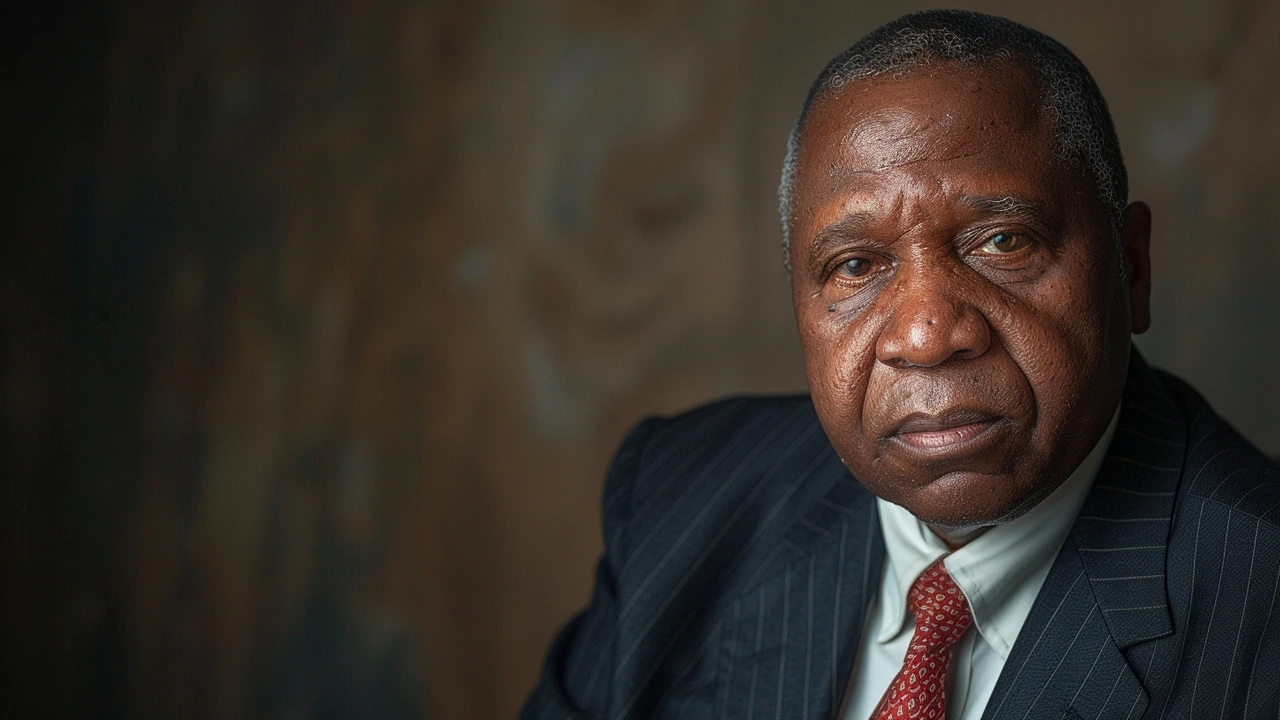-
23
- 0

Capitalism's Influence in Zimbabwean Politics: A Deep Dive into Succession Controversies
In an intriguing turn of events, capitalism is revealing itself to be a formidable player in the race of succession within Zimbabwe's political landscape. A prominent religious figure, Bishop Lazarus, has voiced concerns over the overwhelming influence of capitalist ideologies and interests that seem to permeate the country's political sphere. These developments raise important questions about the future direction of Zimbabwe, a nation with a history deeply rooted in socialist principles, and how these conflicting ideologies might shape its governance.
Zimbabwe, since its independence, has been governed under the principles of socialism, with the ruling party, Zanu-PF, championing policies aimed at equitable distribution of resources among its citizens. However, the changing global political and economic landscape appears to be influencing a shift toward capitalist ideologies, even within the ranks of Zanu-PF. Bishop Lazarus's remarks highlight a growing concern among observers about the increasing sway of capitalist interests over the country's political dynamics, particularly in relation to the selection of President Mugabe's successor.
At the center of this debate is the influence of key political figures such as war veteran Christopher Mutsvangwa, who is accused by Bishop Lazarus of potentially compromising President Mugabe's position. The bishop's accusations extend to other notable figures within Zanu-PF, including former Vice President Emerson Mnangagwa and former Minister Jonathan Moyo, who were allegedly involved in factionalism within the party. These internal rifts are indicative of a broader struggle for power that is being exacerbated by external capitalist pressures.
Bishop Lazarus also directs his cautionary advice towards Morgan Tsvangirai, the leader of the opposition Movement for Democratic Change (MDC). He warns Tsvangirai to prioritize his own safety above making promises to protect others, suggesting that the political landscape in Zimbabwe is fraught with uncertainties and potential dangers, particularly for those who appear to challenge the status quo. This implies a greater complexity in the political fabric of Zimbabwe, where opposition leaders must navigate not only the challenges posed by the ruling party but also the manipulations of capitalist interests seeking to influence the succession race.
Capitalism, according to Bishop Lazarus, is actively searching for a suitable candidate to succeed President Mugabe. This search has extended to various political figures including Morgan Tsvangirai, Joice Mujuru, and Strive Masiyiwa, indicating a broad spectrum of potential allies for capitalist interests. However, the bishop notes a particular focus on candidates within Zanu-PF, suggesting that capitalism may prefer a successor who aligns with its interests but is also capable of maintaining continuity within the current political framework.
The impact of capitalism 'on the rampage' in Zimbabwe's politics, as described by Bishop Lazarus, has profound implications for the country's future governance and ideological orientation. It prompts a critical examination of the moral considerations surrounding capitalist influences in politics. For Christians and the general populace alike, these developments pose significant ethical dilemmas about supporting political leaders and parties that may be swayed by capitalist agendas, potentially at the expense of the social and economic principles that have historically guided Zimbabwe.
The intersection of capitalism and political succession in Zimbabwe is a complex and multifaceted issue that requires careful scrutiny. It encompasses concerns about ideological purity, the integrity of political leaders, and the influence of external economic forces on domestic politics. As Zimbabwe stands at a crossroads, the choices made by its citizens and leaders will likely have lasting repercussions on the nation's identity and governance. The ongoing debate, as articulated by figures like Bishop Lazarus, underscores the importance of maintaining a critical perspective on the role of capitalism in shaping the political landscape and, ultimately, the future of Zimbabwe.
Write a comment
Tags Weight
- Acetaminophen
- burn pain management
- analgesics
- pain relief
- Inversion Therapy
- Treating Backache
- Chronic Back Pain
- Alternative Therapies
- Cyclobenzaprine HCL
- muscle pain relief
- safe usage
- medication guide
- Blue-green algae supplements
- weight loss journey
- health benefits
- sustained energy
- Taumelloolch
- dietary supplement
- science
- effectiveness
Written by Mallory Blackburn
View all posts by: Mallory Blackburn